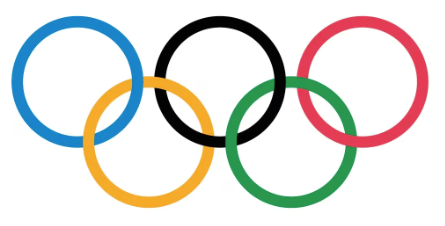Accounting For Psychologists Newsletter #2
Welcome to Accounting for Psychologists Newsletter #2
The inflation rate is officially 6.1%. The treasurer predicts that by December it will peak at 7.75%. The Reserve Bank will combat this by increasing interest rates, again. The big 4 banks won’t hesitate to pass the interest rate rise on to their customers. Meaning, everyone with a variable home loan will feel the pain of increased repayments.
That’s why this month I’m focussing on mortgages and how to make the best of them in these expensive times.
From a business point of view this newsletter, I’ll go through the finer points of GST for psychologists and I’m including a handy-dandy GST for psychologist's summary page. I wanted to call it a cheat sheet but “GST cheat sheet” sounds so wrong. I don’t think the ATO would like that name even though what I’ve made is just a short summary of what common psychological services are GST-free, and which are not.
As always, if you know someone who’ll find this information useful, don’t hesitate to pass it on.
Revisiting your mortgage in times of inflation
With interest rates rising it’s a good time to take a close look at your mortgage to make sure you’re getting the best deal possible.
It’s very likely that you’ll find a better deal with another lender. While the big 4 banks have raised their interest rates, not all lenders have followed suit, and some are taking the opportunity to grab disaffected big 4 customers.
There are incentives and special deals for new customers that you can take advantage of including cash rewards and honeymoon rates.
The first sept in this process, though, is to offer your current lender the chance to keep you on. If they can offer something special to a new customer, why shouldn’t they offer something to an existing customer? It certainly doesn’t hurt to ask.
Here’s a link to a mortgage switching calculator to compare the cost of changing your mortgage to a different interest rate. https://moneysmart.gov.au/home-loans/mortgage-switching-calculator
When comparing loans interest rates are not the only place to look for savings. Check the annual home loan package fee and other ongoing fees like the monthly account fees and other admin costs. These can add up.
When leaving a lender, there are fees involved, however they are not as significant as the banks want you to think. It’s worthwhile doing the sums to see if another lender may have a better deal for you.
Remember saving the 20% deposit for your home, so that you could have a loan to value ratio (LVR) of 80%? If you have already paid off a good proportion of your mortgage your LVR and therefore your riskiness as a borrower will be low and with some lenders this can entitle you to a lower interest rate. Again, it doesn’t hurt to ask.
Another side effect of higher interest rates is that they will probably force house prices to decrease. If you’re in a strong position with your current mortgage you may want to take the opportunity to access the equity in your home loan to buy investment property.
If you’re interested in discussing your home loan, my colleague Sarah and I are both qualified mortgage brokers and we’d be happy to see how your mortgage situation could improve.
GST for Psychologists
Goods and services tax (GST) is a broad-based tax of 10% on most goods, services and other items sold or consumed in Australia.
The general perception appears that all psychology related services are GST free. Unfortunately, this is not true. The law in this area is convoluted and far from clear. We will try our best make it simple for you. As always, if you have any questions feel free to ask us.
Let’s first start with GST registration.
GST Registration
You will need to register for GST if you anticipate your annual turnover is going to be greater than $75,000.
If your turnover is less than $75,000, registering for GST is optional. If this is the case, you need to consider the cash flow and the additional obligations of your decision.
Let’s look at the example below:
Sam is a psychologist with an annual turnover of $60,000, so under the legislation it’s not compulsory for her to register for GST.
Her expenses for stationary, rent, clinical resources and software come to $13,200.
| Annual turnover (assume all GST free) |
$60,000 |
| Expenses (assume all inclusive of 10% GST): |
|
| Printing and Stationary |
$ 1,100 |
| Rental |
$11,200 |
| Clinical resources |
$ 550 |
| Software expenses |
$ 550 |
| Total Expenses |
$ 13,200 |
If Sam registers for GST, she’ll be eligible to claim a refund of $1200 (the total $13,200 divided by 11). In order to do this, she’ll need to prepare and submit Business Activity Statements (BAS) every quarter to the Australian Taxation Office (ATO). Sam’s accountant can do this on her behalf, and she will receive her refund.
How to calculate GST
This calculator from the Money Smart website has a function to show much GST is already included in the price of a product or service. Just change the option on the ‘GST status’ bar to ‘including GST’. As I mentioned above to do this manually divide by 11.
Alternatively, if you want to calculate how much GST to add to a price choose “excluding GST” on the status bar. To do this manually multiply by 1.1.
https://moneysmart.gov.au/income-tax/gst-calculator
Psychology Services and GST
Psychology services are listed in the GST legislation as health services, which means you don’t normally need to charge GST on the services that you provide. However, there are two additional criteria you need to satisfy before you can class your psychology services as GST free and they are:
- Be a recognised practitioner to perform the service
- In Australia, psychology is a regulated profession. To be a recognised psychologist you must have the necessary qualifications and experience and you must be registered with the Psychology Board of Australia.
- The service follows necessary and appropriate procedures and standards.
- As psychology is a regulated profession and to make sure psychologists are in line with the requirements of professional indemnity insurance, there are generally accepted procedures and standards with regards to the services a psychologist offers. You need to make sure that you adhere to these procedures and standards when delivering your services.
Now let’s look at the GST implications of common psychology services:
Consultation and Assessment: This is straight forward and is GST free. We assume the service is provided by a recognised practitioner and it follows appropriate procedures and standards.
Group Sessions: This is GST free as long as the sessions are provided by a recognised practitioner and that the sessions follow the appropriate procedures and standards.
Supervision Fees: This is a service that you provide to supervise a psychologist, hence it is not a health service. You need to add GST to your fee.
Report Writing: The ATO regards the recipients of the report not as patients but as a third party. Therefore, it is not classified as a health service. You need to add GST to your fee.
Legal briefings and Court Attendance: The ATO regards the recipients of this service as the party that requires your attendance, such as an insurance company, a lawyer, or a court. Therefore, this is not a health service and will be subject to GST.
Travel: Your travel fee to your client is GST free provided it is related to the health services that you provide – i.e. consulting, assessments and group sessions. Any travel that is not related to you providing health services is subject to GST.
Speaking and Seminar Fees: Educational courses are GST free but conferences, short courses and seminars are not covered by the definition of educational courses. Therefore, any fees that you charge for speaking engagements or seminars are subject to GST.
Books and Materials: Books and materials that you sell are subject to GST
Cancellation Fees: A cancellation fee paid by a client for a missed or cancelled appointment is treated as payment for the intended service (i.e. treatment, consultation, report writing etc). If a cancellation fee is charged where a customer fails to turn up for an appointment, the fee will normally be treated as payment for the same thing that the appointment was made for. If the service that you would have supplied to the person who cancelled is GST free, then the cancellation fee is also GST free.
Payments Made by Third Party
Things can get complicated when you have third party – e.g. Private health insurance company, Medicare, NDIA, Motor Accident Commission, Workers Compensation Organisation - paying for the psychological services on behalf of your client. Let me elaborate this further…
For a psychology service to be classed as GST free, you must be providing a ‘health service’. The third party which you invoice for your services (and will be paying for your service) is not your client so they technically are not the recipient of your psychology service.
In this instance, there is a special section in the GST legislation that allows the services to be GST free provided the underlying service is GST free. So, for example, if you are providing a psychology consulting service to a client, it will still be deemed as GST free. If you are providing report writing service, then if won’t be GST free.
Payment from NDIA is a little trickier. A written plan and agreement are required for the service to be classed as GST Free. Therefore, it is possible in some limited cases that there may be an issue with the service not being GST free.
Practice Management Arrangement
Practice management arrangement is a situation where you work as a contractor with another psychology practice, and you pay them a percentage of your fees to cover the facilities and administrative costs. The GST implications on a practice management arrangement can be a bit tricky depending on how the arrangement is setup.
The two most common setup are as follows:
1 – Facility Hire Arrangement - you pay service fees to the practice.
This is where the practice provides you with a facility management arrangement, in which the practice is providing administration (telephone answering, appointment booking, billings etc) and facilities in exchange for an administrative fee.
In this instance, you invoice your client directly under your name, provider number and ABN. Let’s say your consulting fee is $200 and you have a 70%/30% split with the psychology practice. The psychology services that you provide are GST free (assuming you are registered with the board and your services follow necessary and appropriate procedures and standards).
However, when the practice bills you for their share of 30% split, the practice needs to add GST (if they are registered for GST) to the fees. This is because facilities and administration fees are not health services and are subject to GST. You can claim the GST back when you lodge your BAS return with the ATO.
Example:
Vanessa, a registered psychologist, works under a facility hire arrangement with a psychology practice. She hires the use of rooms as well as administration services in a 70%/30% split arrangement.
Vanessa sees a client for health services and charges $200
After seeing the client she issues an invoice using her name, provider number and ABN to the client for the full amount of $200.
The psychology practice then bills Vanessa for their 30% share of the fee, that is $60. The practice adds GST of $6 on top of this because facilities and administration fees are not health services and are subject to GST.
When Vanessa lodges her BAS with the ATO she can claim back the GST.
2 – Contractor Agreement Arrangements - The Practice Pays for Your Services.
In this arrangement, the practice engages you as an independent contractor. The practice invoices the client directly under the practice name. When the practice receives payments from the client, they pay you your share of income. Let’s see the example below:
The consultation fee is $200, and you have a 70%/30% split. In this instance the $200 psychology service is GST free. When the practice receives the payment, they keep their share which is $60 and forward the rest to you.
In this instance, you need to invoice the practice $154 ($140 + GST) and not $140. This is because you are providing a professional service to the practice and not a health service to the practice. The practice can claim the GST back when they lodge their BAS return with the ATO.
Jo, a registered psychologist, is engaged by a psychology practice as an independent contractor with a 70%/30% split arrangement.
Jo sees a client for health services valued at $200. As this is a health service, it is GST free.
The practice invoices the client for $200 using the practice name.
The practice keeps their 30% share of the $200 that the client paid, that is $60.
Jo invoices the practice for $154. That is $140, her 70% share of the $200 fee, + $14 GST because Jo is providing a professional service to the practice and not a health service.
The practice can claim the GST back when they lodge their BAS return with the ATO.
In Summary
As you can see from the above that GST legislation is very complex. So, don’t hesitate to ask us about any aspects of it.
Phew! That’s a long article. I hope you’ll find it useful. I’ll also make it available as a PDF from the Sheridans website. www.sheridans.net.au/Accountingforpsychologistsresources.
Here’s the summary page of common psychology services and their GST implications I promised you.
*Note that*
- *when payments are made by a third party there is a special section in the GST legislation that allows the services to be GST free provided the underlying service is GST free.
- *payment from NDIA requires a written plan and agreement for the service to be classed as GST Free.
10
| Service |
GST free |
GST |
It Depends |
| Consultation and Assessment |

|
|
|
| Group Sessions |

|
|
|
| Supervision Fees |
|

|
|
| Report Writing |
|

|
|
| Legal briefings and Court Attendance |
|

|
|
| Travel |

|
|
Any travel that is not related to you providing health services is subject to GST. |
| Educational Courses |

|
|
|
| Conferences, short courses, Seminars |
|

|
|
| Books and Materials |
|

|
|
| Cancellation Fees |
|
|
Depending on what was cancelled. If it was for report writing the GST will be charged. If it was for a health service, GST
will not be charged. |
Last month I shared with you that my partner and I have been working on a book about getting personal finances sorted. The exciting news is that it’s off to the printers! We hope it’ll be ready in Spring. We can’t wait to show it to you.
Till next month,
Fairuz














